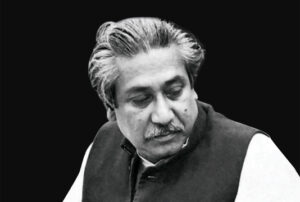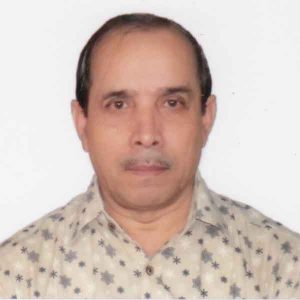21 July 2017, New Delhi
People’s SAARC meeting held in New Delhi on 21st July 2017 was attended by 15 people. The main points of discussion were the role of People’s SAARC in the South Asia in the contemporary historical juncture and charting of a work plan for the immediate and medium terms.The role of PSAARC as a critique of SAARC as well as the agenda setting function of PSAARC was highlighted.
(1) There was a consensus that PSAARC should link to the official SAARC process in two ways – first through an ongoing monitoring of SAARC activities and intervention where possible and second through organizing of the PSAARC Convention parallel to the SAARC Summit held every 2 years. It is important for people’s movements and mass movements in South Asia to connect to a regional/institutional framework.
There was also consensus that PSAARC should delink from the SAARC process in two ways. One, by partially de-linking from the official cycle of the summit process so that regardless of whether the SAARC summit is held or not, PSAARC Convention should be held regularly, on schedule, every 2 years. Second, it is apparent that the core cause of the persistent crisis of SAARC is the bilateral relationship between India and Pakistan. In this context, it is important to articulate an ideology that addresses the Indian State’s geo-political perception of itself in the region which manifests as a sum of reciprocal bilateralism. Rather than only relying on the formal equality of all South Asian States that is the premise of the SAARC, it is imperative that India participates in this process from the principle of ‘more than equal reciprocity’ on all issues of bilateralism and regionalism. The process of articulating an alternative ideology of regionalism can begin with a debate on the Gujaral doctrine.
If India is to be one of the leading South Asian countries, it has to help shape a democratic space for regionalism and emerge as a legitimate articulator of the region on a global level.
(2) There was also consensus that work on thematic issues should continue (such as through the existing or new/emerging thematic working groups) as a way to demonstrate the kinds of cross-South Asian dialogues that are needed as well as to demonstrate what South Asian governments should be doing. People’s mechanisms can be a counterpoint of institution building that convert ideas into tangible strategies that resonate with people on the ground. It was agreed that focused work should continue on Rights of Minorities in South Asia and on Labour Rights/Migration. Additional thematic/focused work can be initiated by any PSAARC member.
(3) It was agreed that a PSAARC working group on Strategic Affairs be constituted and its first task should be to draft a statement responding to Pakistan Government’s call to hold the SAARC Summit in Pakistan in 2017 and the silence of the Indian Government on this call. Further, this working group is mandated to shape PSAARC response to strategic issues in all parts of South Asia by way of issuing statements, letters etc.
Professors Muchkund Dubey and Manoranjan Mohanty, Rita Manchanda, Ashim Roy and Rakhi Sehgal are to initiate this process and co-opt working group members from remaining 7 South Asian countries.
(4) There was consensus that a Secretariat is important to drive the PSAARC process as demonstrated in the last couple years; and immediate efforts should be made to rebuild the Secretariat process by locating funds and staff for the Secretariat so that the momentum can be regained and further strengthened.
(5) In response to the proposal by the Regional PSAARC Secretariat to hold a “strategic think meeting” in Kathmandu on 13-14th September, it was agreed that (i) all those from India who want to attend this meeting and can raise their own funds for travel and accommodation should inform the PSAARC-India Secretariat so it can coordinate with the Regional Secretariat (since they can only host a limited number of representatives from all 8 countries); (ii) the India Regional Representatives on the PSAARC Steering Committee – Harsh Mander and Rakhi Sehgal – should attend the meeting and (iii) a pre-departure meeting should be held if possible.
The Gujral Doctrine is a set of five principles to guide the conduct of foreign relations with India’s immediate neighbours as spelt out by I.K. Gujral, first as India’s foreign minister and later as the prime minister. Among other factors, these five principles arise from the belief that India’s stature and strength cannot be divorced from the quality of its relations with its neighbours. It, thus, recognises the supreme importance of friendly, cordial relations with neighbours.
These aprinciples are: first, with neighbours like Bangladesh, Bhutan, Maldives, Nepal and Sri Lanka, India does not ask for reciprocity, but gives and accommodates what it can in good faith and trust; second, no South Asian country should allow its territory to be used against the interest of another country of the region; third, no country should interfere in the internal affairs of another; fourth, all South Asian countries must respect each other’s territorial integrity and sovereignty; and, finally, they should settle all their disputes through peaceful bilateral negotiations.
According to Gujral, these five principles, scrupulously adhered to, would achieve a fundamental recasting of South Asia’s regional relationships, including the difficult relationship between India and Pakistan. Further, the implementation of these principles would generate a climate of close and mutually benign cooperation in the region, where the weight and size of India is regarded positively and as an asset by these countries.
Participants: Harsh Mander (Aman Biradri), Rita Manchanda (SAFHR), Meenal Manolika (Sangat), P. Joseph Victor Raj (Hope, Puducherry), Vishrut Aggarwal and Uddhab Pyakurel (SADED), Amitabh Behar and Monica Banerjee (NFI), Ashim Roy and Anannya Bhattacharya (NTUI), Santi Snigdha and Anas Zaman (Delhi Forum), Prof. Manoranjan Mohanty (CSD, PIPFPD), N. P. C (People’s Council of Education), Rakhi Sehgal (PSAARC-India Secretariat)
Regrets received from 35 people. – Source: PSAARC, India




